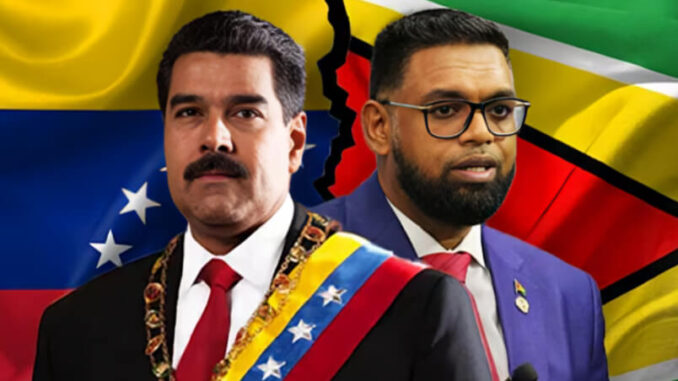
Guyana Fights Venezuela’s Essequibo Claims in International Court
Guyana Fights Venezuela’s Essequibo Claims in International Court. The territorial dispute between Guyana and Venezuela over the Essequibo region has intensified, leading to legal proceedings at the International Court of Justice (ICJ). This conflict, rooted in historical claims and recent geopolitical developments, has significant implications for both nations.
Historical Context
The origins of the dispute trace back to the 19th century when the boundary between Venezuela and British Guiana (now Guyana) was undefined. In 1899, an international arbitration tribunal awarded the Essequibo region to British Guiana. Venezuela accepted this decision until 1962, when it contested the arbitral award, alleging unfairness and asserting claims over the territory. The Essequibo region encompasses approximately 160,000 square kilometers, constituting about two-thirds of Guyana’s landmass.
Recent Developments
In recent years, the discovery of substantial oil and gas reserves off Guyana’s coast has heightened the stakes of the territorial dispute. In December 2022, Venezuela conducted a referendum proposing the annexation of the Essequibo region, escalating tensions. Subsequently, Venezuela announced plans to hold elections in the disputed territory, aiming to elect a governor and legislative council for what it refers to as “Guayana Esequiba.” These actions prompted Guyana to seek intervention from the ICJ.
Guyana’s Legal Actions
In March 2025, Guyana filed a request with the ICJ for provisional measures to prevent Venezuela from proceeding with its planned elections in the Essequibo region. Guyana argued that such actions violate international law and infringe upon its sovereignty. The ICJ acknowledged Guyana’s request and is considering the appropriate measures to address the situation.
ICJ’s Involvement
The ICJ’s involvement in the Guyana-Venezuela dispute has been ongoing. In December 2020, the Court affirmed its jurisdiction to adjudicate the validity of the 1899 arbitral award and the definitive settlement of the land boundary dispute between the two countries. This decision paved the way for legal proceedings to resolve the longstanding territorial controversy.
Regional and International Reactions
The international community has expressed concern over the escalating tensions between Guyana and Venezuela. The United States has shown support for Guyana, emphasizing the importance of respecting international law and the ICJ’s decisions. The Caribbean Community (CARICOM) has also called for a peaceful resolution to the dispute, urging both nations to adhere to legal processes.
Economic Implications
The Essequibo region is rich in natural resources, including significant oil reserves. Guyana’s burgeoning oil industry has attracted global attention, with major companies like ExxonMobil investing heavily in offshore oilfields. The territorial dispute poses risks to these investments and the broader economic stability of the region. Guyana’s government has been exploring options to refine its crude oil in the United States and import refined fuel for domestic use and regional sales, reflecting the country’s rapid economic growth and the strategic importance of its natural resources.
Conclusion
The territorial dispute over the Essequibo region remains a complex and sensitive issue with deep historical roots and significant geopolitical ramifications. The involvement of the ICJ represents a critical step toward a legal resolution, but the situation requires careful navigation to prevent further escalation and ensure regional stability. The international community’s role in supporting a peaceful and lawful resolution is crucial in upholding the principles of international law and respecting the sovereignty of nations.
Leave a Reply